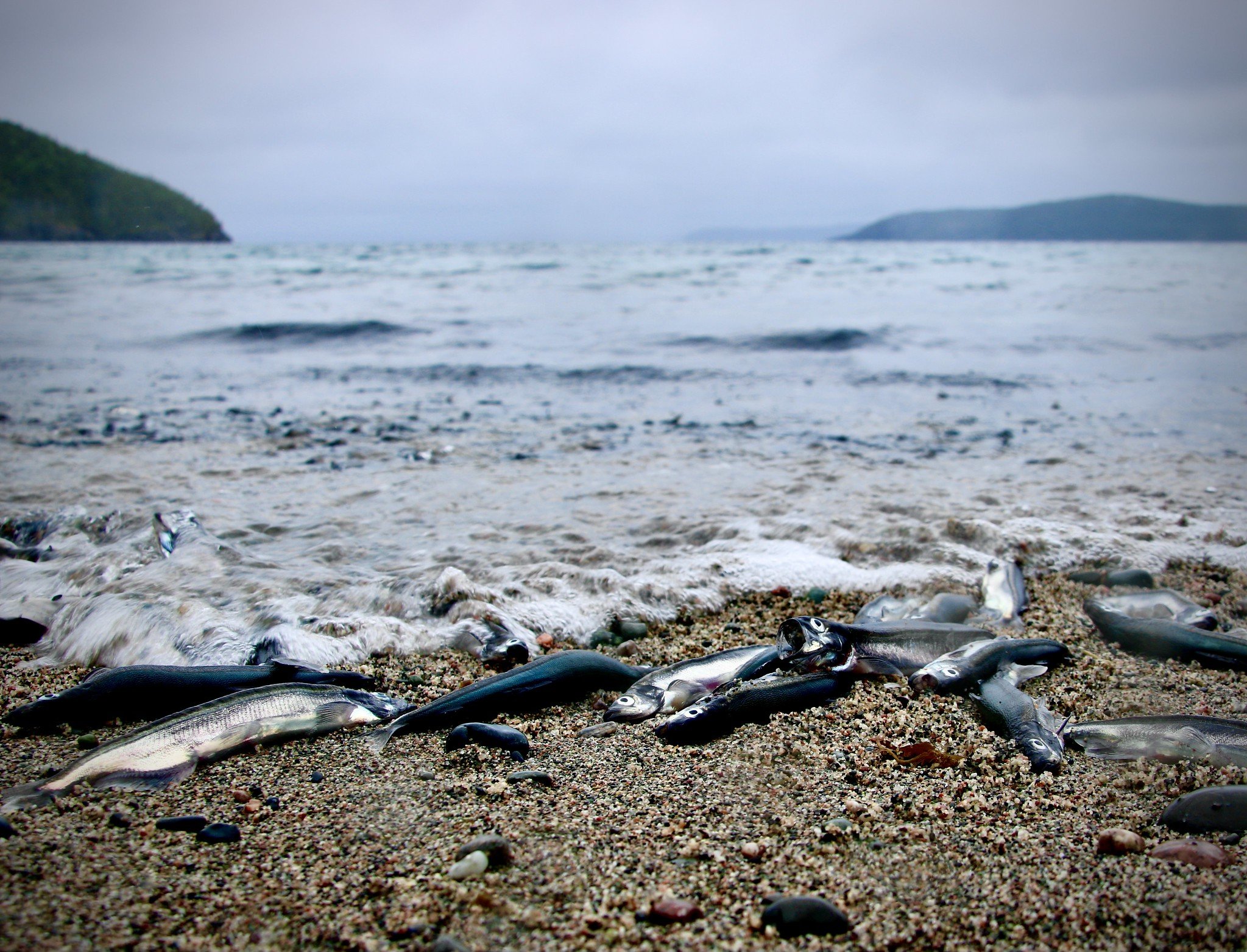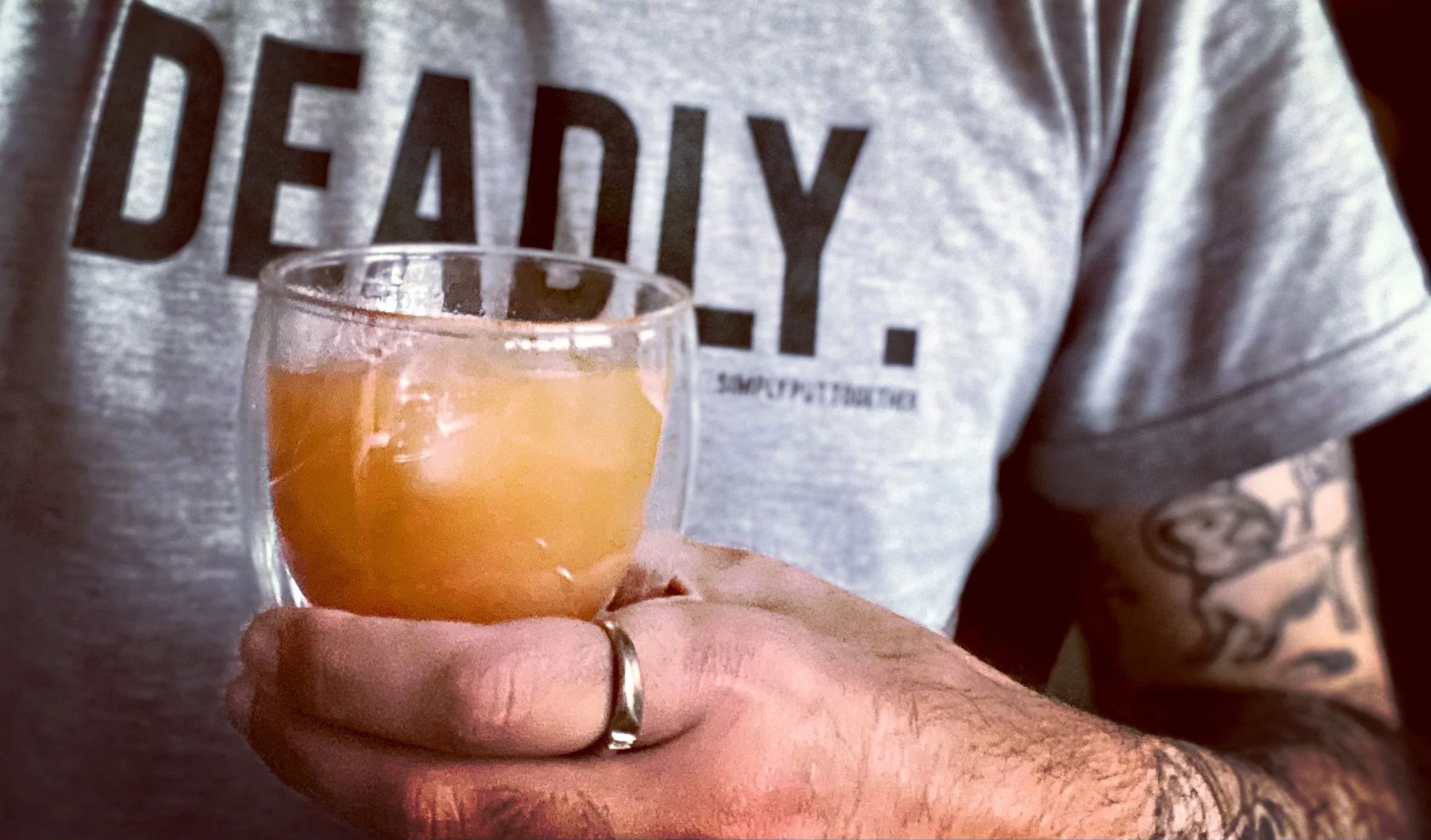Capelin Scull: Roll With It
Capelin, Sandy Cove Beach
Every early summer, just as the days stretch out and the lilacs bloom, something strange and spectacular happens along the coast of Newfoundland: the capelin roll.
Tiny silver fish, thousands—sometimes millions—strong, surge toward the beaches. They don’t just swim ashore, they hurl themselves onto the land, riding the waves like some glittering tide of sacrifice. It’s wild. It’s messy. And it’s one of the most breathtaking natural displays you’ll ever witness.
We call it the capelin scull, a name as stark and strange as the event itself. The fish roll in, wriggling and flailing, desperate to spawn. The females lay their eggs on sandy beaches, the males follow to fertilize them, and then—just like that—their short, silvery lives end. They do it for survival. Maybe even love, if you squint your heart just right.
I’ve been thinking about the capelin a lot lately, how something so tiny can leave such a deep mark on memory.
The Rolling Capelin:
A Newfoundland Cocktail
If you're 19 or older and feel like toasting the season, consider trying a Rolling Capelin. This sweet, fruity cocktail is made with Newfoundland Iceberg Vodka and locally-crafted partridgeberry syrup—a refreshing tribute to the capelin run and a taste of the island in every sip.
40ml Iceberg Vodka
20ml Peach Schnapps
40ml Orange Juice
20ml Dark Tickle Partridgeberry Syrup
Combine all ingredients in a mixing glass. Strain into an ice-filled glass. You're straining to remove the partridgeberry bits. If you like a higher-fiber beverage, feel free to skip this step. If you're so inclined, garnish with an orange slice.
Some of my clearest childhood beach days were built around the capelin roll. On Eastport Beach, I'd dash into the shallows, swimming and stomping among the schools. I’d scoop them up in my hands and beg my parents to let me keep them. I imagined raising one like a pet, something far cooler than sea monkeys. Nine-year-old me didn’t know a lukewarm salt-beef bucket wasn’t exactly a state-of-the-art aquarium. Spoiler alert: they didn’t last long.
My grandparents, though, they had more practical plans for the capelin. After the roll, they’d walk the shoreline, gathering the dead fish into sacks and hauling them back to the garden. It was common back then—people burying capelin in their potato beds. Free fertilizer. Good sense. They’d turn that fishy, salty bounty into the best spuds you ever tasted, enough to last the winter. It’s humbling to think how self-sufficient they were, how much they made from so little. And here I am, helpless if the Wi-Fi cuts out for more than an hour.
Later, when I was a teenager, capelin meant money. Not for me personally—I never worked the fish plant—but lots of my friends did. The capelin run brought long hours folding boxes, prepping shipments, filling their summer wallets. My own first job was keeping the beaches clean. That meant hauling kelp and burying the fish that didn’t make it. It was wet, stinky work. But it paid. And it prepared me for even better-paying gigs, like cleaning up roadkill. (What can I say? It’s been a glamorous life.)
Years passed, and for a while, I stopped paying attention to the capelin. Grown-up life got in the way. But this year, I decided to go back.
I took my camera gear, my niece and nephew, and headed to Capelin Gulch—right at the far end of Sandy Cove Beach. The weather was classic capelin-scull weather: cold, wet, grey. Honestly, I’d have been disappointed if it wasn’t. There’s even an entry in the Dictionary of Newfoundland English for it: capelin-scull weather—defined as “wet and miserable.” I grew up believing summer wouldn’t really start until the capelin rolled.
The kids didn’t last long. They huddled in the car after a while. But I pressed on, jeans soaked, sneakers squelching, kneeling in the surf with my camera like some bedraggled nature documentary host. I must’ve looked pretty strange.
A text message
A man nearby was doing the sensible thing—scooping capelin into a bucket with a net. He probably thought I was foolish for wading around with my gear instead of collecting supper. And he wasn’t wrong.
It didn’t even cross my mind to gather the fish. I’ve eaten my fair share—fried up crisp or roasted by a fire—but I never learned how to catch or preserve them. My grandfather used to salt and dry them. He’d always hook me up. I remember watching him do it, but never really paid attention. I guess I figured he’d always be around.
Now I wish I’d learned. But that’s how these things go, isn’t it? We don’t realize what we’re losing until it’s gone. One day you’re standing on a beach, and all you have left are capelin-coloured memories.
But they still roll, and we can still watch. And that’s something.
A Return to the Roll
A few years after I wrote this, I found myself back on the same stretch of beach—camera in hand, boots this time instead of sneakers. The capelin were rolling again, but the weather had changed its tune. No drizzle, no fog. Just sun on the water and the soft hush of waves lapping the shore.
It was a different kind of magic. Still wild, still beautiful, but with a bit more warmth and a little less misery.
I captured it on video again but this time there were no soaked jeans and no shivering kids waiting in the car. Just me, a calm sea, and that same silver shimmer.
You can watch it below.
Capelin on Sandy Cove Beach, NL


